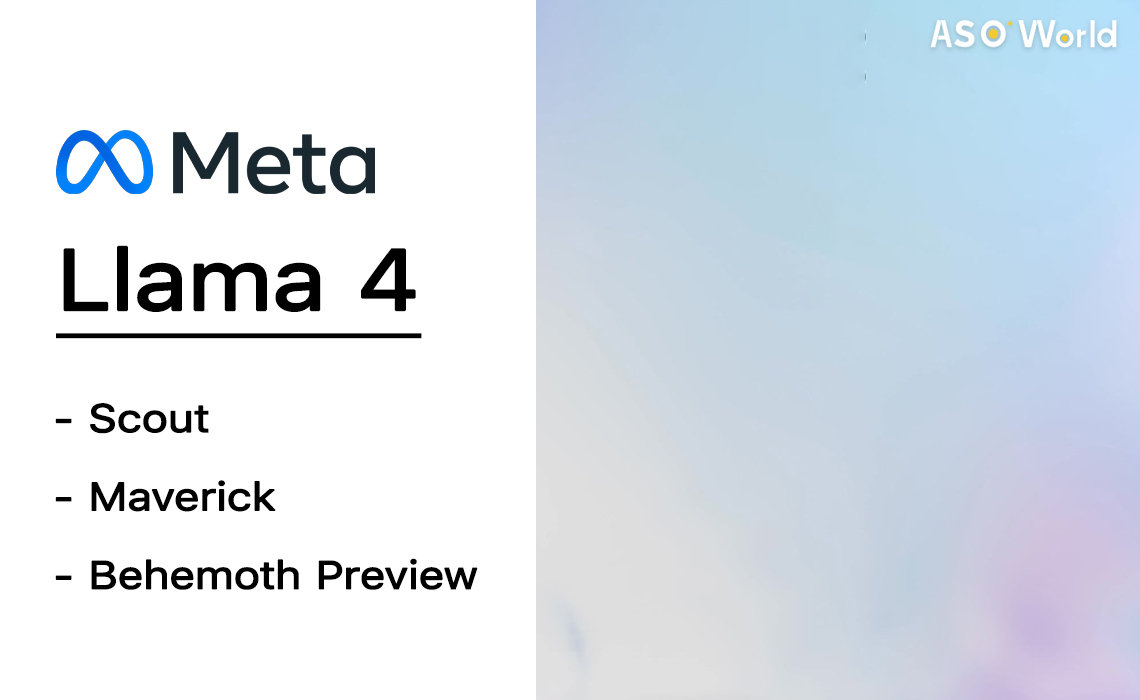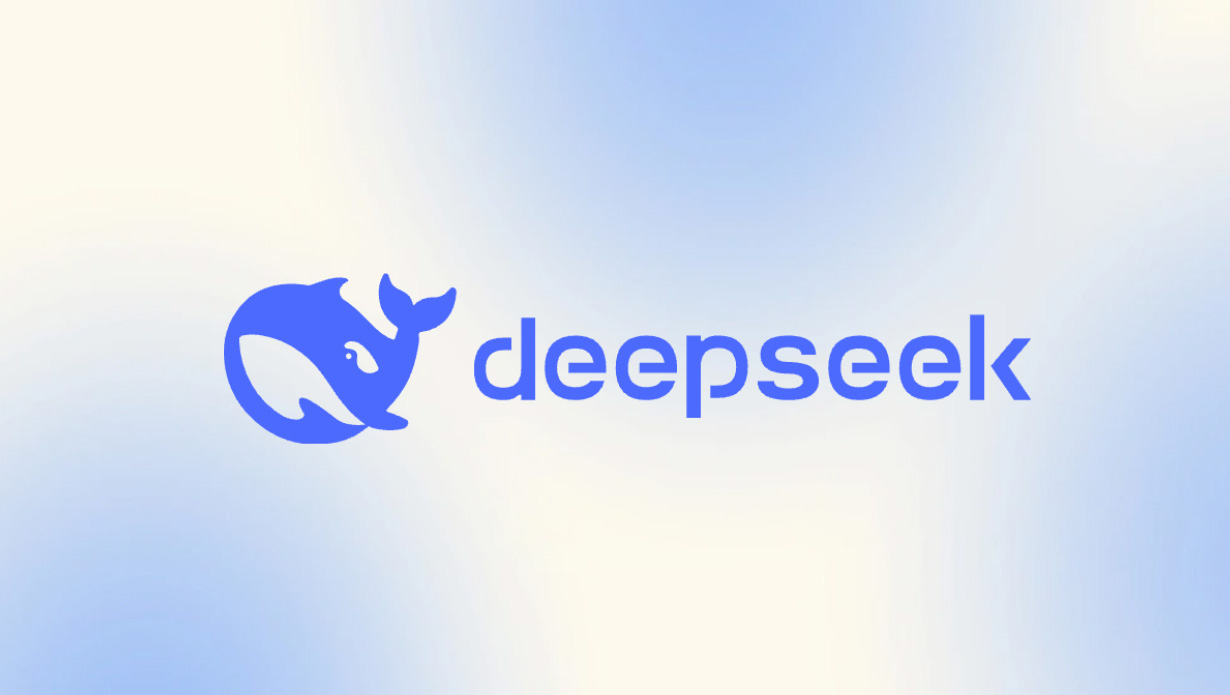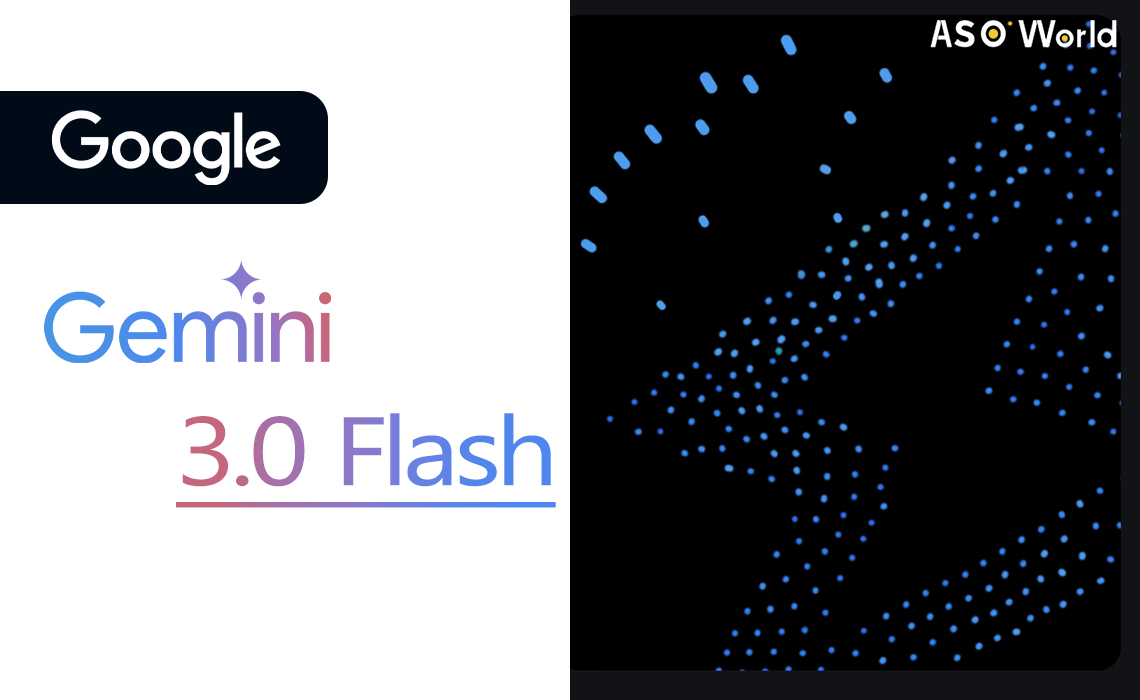Meta has introduced Llama 4, a family of advanced AI models released on April 5, 2025, marking a significant milestone in artificial intelligence technology.
This article delves into the key features of Llama 4, its improvements over previous models, and its standing among competitors, offering a clear view of its role in the evolving AI landscape.
Background and Development Context
Llama 4 builds on Meta's Llama series, launched in 2023, and includes three models: Scout, Maverick, and Behemoth.
Designed with a mixture-of-experts (MoE) architecture and early fusion techniques, it excels in processing text, images, and videos, responding to rising competition from models like DeepSeek and GPT.
Release Details and Availability
Released on April 5, 2025, Llama 4 Scout and Maverick are downloadable from platforms like Hugging Face.
Behemoth, the largest variant, remains in training with a preview available.
These models integrate into Meta AI across apps like WhatsApp and Instagram Direct, though multimodal features are currently U.S. English-only.
Differences Among Llama 4 Scout, Maverick, and Behemoth
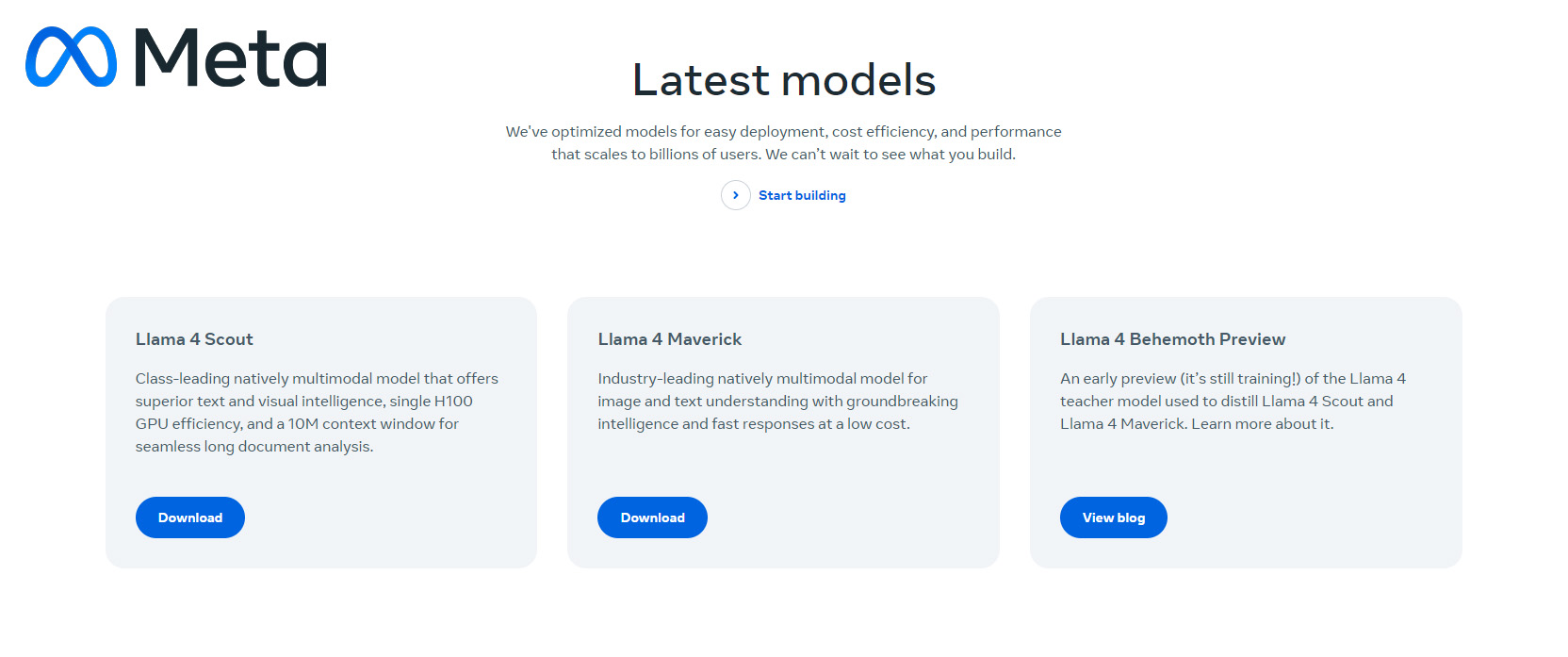
Llama 4's three variants cater to distinct needs:
Llama 4 Scout
With 109 billion parameters and 16 experts, Scout is lightweight, fitting on a single Nvidia H100 GPU.
Its 10-million-token context window excels in long-context tasks like document summarization, priced at $0.26 per million tokens.
Llama 4 Maverick
Boasting 400 billion parameters and 128 experts, Maverick targets high-performance needs, requiring an Nvidia H100 DGX system.
It balances a 1-million-token context with superior coding and reasoning skills, costing $0.40 per million tokens.
Llama 4 Behemoth
Still in preview with nearly 2 trillion parameters, Behemoth is the most powerful, designed for cutting-edge STEM applications.
It demands substantial hardware and promises to rival top models once fully trained.
Key Advancements Over Llama 3
Llama 4 brings substantial upgrades over Llama 3, enhancing its utility across various domains.
Larger Context Window
Llama 4 Scout features a context window of 10 million tokens, far surpassing Llama 3's 128,000 tokens.
This upgrade supports complex tasks like summarizing multiple documents or analyzing extensive codebases, enhancing its utility for developers.
Improved Multilingual Support
Trained on 200 languages with ten times more multilingual tokens than Llama 3, Llama 4 supports global use in languages such as Arabic, Hindi, and French.
This makes it a strong option for diverse, international applications.
Enhanced Architecture and Performance
With MoE architecture—Scout at 109 billion parameters and Maverick at 400 billion—Llama 4 improves efficiency and performance in coding, reasoning, and image processing.
It also cuts bias, reducing refusals on debated topics from 7% to under 2%.
Comparing Llama 4 with Competitors
| Model | Provider | Context Window | Intelligence Score | Price ($/M tokens) | Output Speed (tokens/s) | Latency (s) |
| Llama 4 Maverick | Meta | 1M | 49 | 0.40 | 127.2 | 0.36 |
| Llama 4 Scout | Meta | 10M | 36 | 0.26 | 104.1 | 0.33 |
| GPT-4o | OpenAI | 128K | 50 | 7.50 | 212.2 | 0.55 |
| Gemini 2.5 Pro | 1M | 68 | 3.44 | 157.9 | 35.88 | |
| Gemini 2.0 Flash | 1M | 48 | 0.17 | 248.3 | 0.30 |
(Data Source: Artificial Analysis)
Performance Against Top Models
Llama 4 Maverick outshines GPT-4o and Gemini 2.0 in coding, reasoning, and multilingual tasks, though it trails Gemini 2.5 Pro and Claude 3.7 Sonnet in some benchmarks.
Behemoth, once fully trained, may challenge these leaders, especially in STEM fields.
Cost and Open-Source Edge
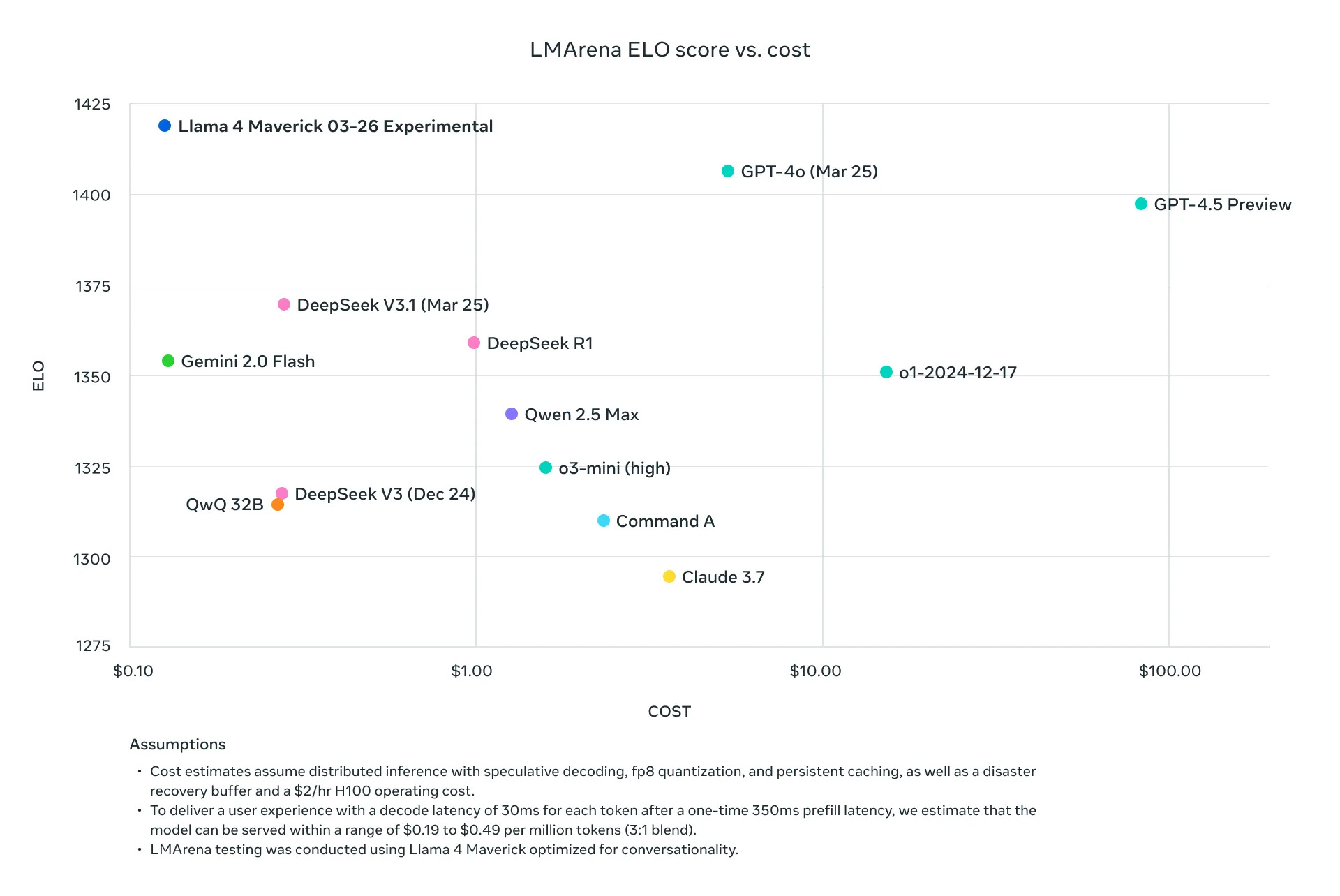
(Source: Meta)
At $0.26 per million tokens for Scout versus GPT-4o's $7.50, Llama 4 offers a cost-effective alternative.
Its open-source status allows customization, giving it an advantage over proprietary models and broadening access for developers.
Future Implications
Llama 4's multimodal capabilities and affordability could transform industries like education and healthcare by enabling innovative AI applications.
Its open-source nature may level the playing field, fostering competition and creativity.
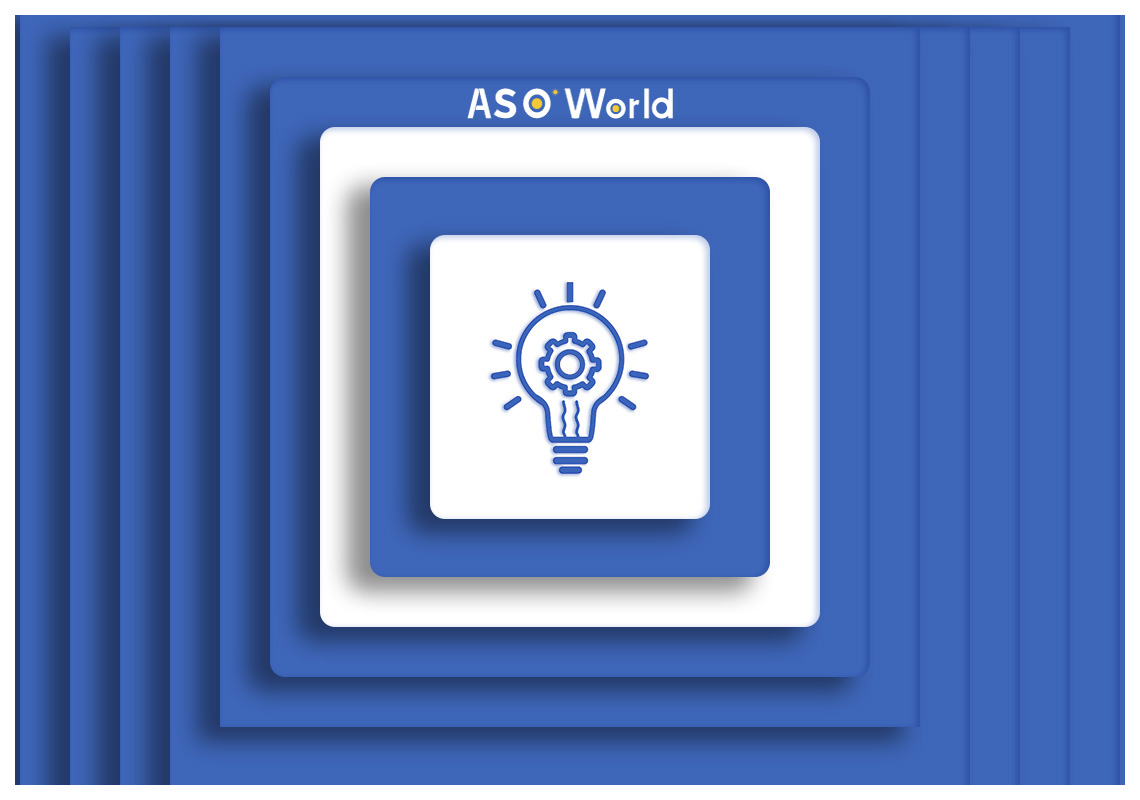
Editor's Comments
Llama 4 stands out as a bold move by Meta to challenge proprietary AI giants. Its cost-effectiveness and flexibility could empower smaller entities to adopt advanced AI, potentially shifting industry dynamics.
While not yet the top performer in all areas, its trajectory—especially with Behemoth—suggests Meta aims to lead future AI advancements, possibly setting new standards in accessibility and performance.
